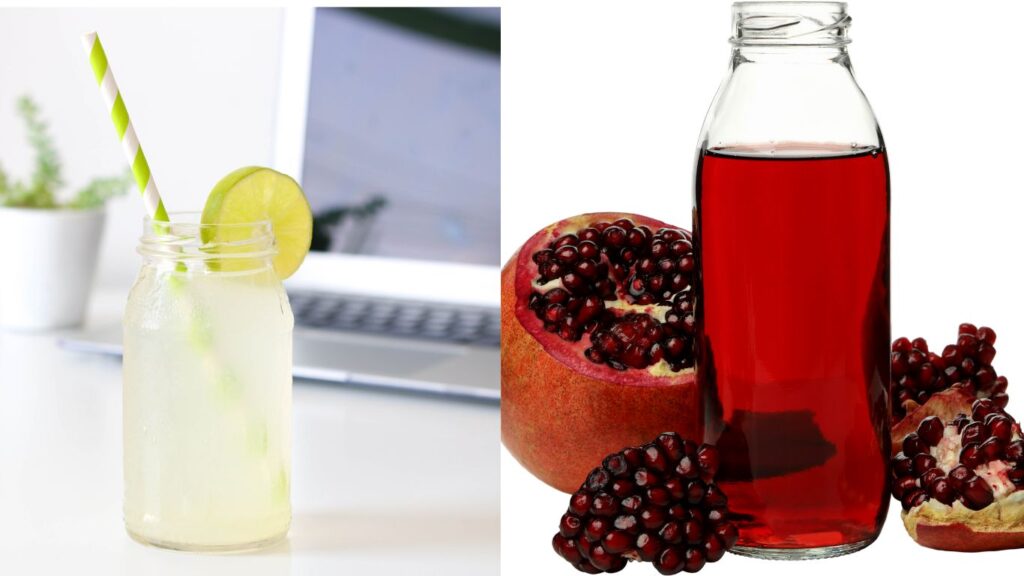Kidney stones are hard mineral deposits that form in the kidneys, causing significant pain and discomfort. While there are medical treatments available, many people turn to natural remedies to help manage and prevent kidney stones. Some of these remedies can be effective, while others may be less reliable or even potentially harmful. In this blog, we’ll explore natural ayurvedic remedies for kidney stones, discussing what works, what doesn’t, and why.
Natural Remedies for Kidney Stones: What Works and What Doesn’t
How Do Kidney Stones Form?
Kidney stones form when certain substances in the urine, such as calcium, oxalate, and uric acid, become concentrated and crystallize. Factors like dehydration, diet, genetics, and underlying health conditions can increase the likelihood of stone formation. Understanding how they develop is key to finding effective remedies.
Natural Remedies That Work

1. Staying Hydrated
- Why It Works: Drinking plenty of water is one of the most effective ways to prevent kidney stones. Hydration dilutes the substances in the urine that can form stones, helping flush them out before they can crystallize.
- How to Use It: Aim for at least 8-10 glasses of water a day. For those prone to kidney stones, it’s recommended to drink enough to produce about 2 liters of urine daily.
2. Lemon Juice
- Why It Works: Lemons are rich in citrate, a compound that can prevent calcium stones from forming by binding with calcium in the urine and stopping it from crystallizing.
- How to Use It: Squeeze fresh lemon juice into your water throughout the day. Drinking lemon water regularly can help prevent new stones from forming and may even help dissolve small existing ones.
3. Apple Cider Vinegar
- Why It Works: Apple cider vinegar (ACV) contains acetic acid, which is believed to help soften and dissolve kidney stones, making it easier for them to pass through the urinary tract. ACV may also reduce the pain associated with stones.
- How to Use It: Mix 1-2 tablespoons of ACV with water and drink it once or twice a day. However, excessive consumption can lead to digestive problems, so use it in moderation.
4. Basil Juice
- Why It Works: Basil contains acetic acid, which can help break down kidney stones. Additionally, it’s packed with antioxidants that promote overall kidney health.
- How to Use It: Drink basil tea or mix fresh basil juice with water. Regularly consuming basil can help maintain kidney health and prevent stone formation.
5. Pomegranate Juice
- Why It Works: Pomegranate juice has antioxidants that can help improve kidney function and reduce the risk of stone formation. It’s also known to be an excellent hydrating agent.
- How to Use It: Drink a glass of fresh pomegranate juice daily. It can be particularly beneficial for those prone to uric acid stones due to its alkalizing effect on urine.
Natural Remedies That Don’t Work (or Are Less Effective)

1. Beer or Alcoholic Drinks
- Why It Doesn’t Work: There’s a common belief that beer can help flush out kidney stones, but this is not backed by scientific evidence. While beer is a diuretic (increases urine output), it can also lead to dehydration, which may increase the risk of kidney stones.
- What to Avoid: Drinking alcohol in excess can be counterproductive, leading to dehydration and making it harder for your kidneys to function properly.
2. Cranberry Juice
- Why It Doesn’t Work (for Kidney Stones): While cranberry juice is often recommended for urinary tract infections (UTIs), it’s not effective against kidney stones. In fact, it can increase the oxalate content in urine, raising the risk of calcium oxalate stones.
- What to Avoid: Those prone to calcium oxalate stones should limit or avoid cranberry juice.
3. Dandelion Root Tea
- Why It’s Less Effective: Dandelion root is a natural diuretic, which can increase urine output. However, its effectiveness in preventing or dissolving kidney stones is not well-supported by research. While it may support general kidney health, relying on it alone for treating stones may not be sufficient.
- What to Consider: If you use dandelion tea, ensure you are also drinking enough water and following other effective preventive measures.
4. Soda and Sugary Drinks
- Why They Don’t Work: Contrary to what some might believe, drinking sodas or sugary drinks can increase the risk of developing kidney stones, especially if they contain high fructose corn syrup. These drinks can lead to higher levels of uric acid, which may contribute to stone formation.
- What to Avoid: Reduce or eliminate sodas, energy drinks, and other sugary beverages from your diet to lower your risk of kidney stones.
Additional Tips for Managing Kidney Stones Naturally

- Maintain a Balanced Diet
- Focus on: Eating plenty of fruits, vegetables, and whole grains can help prevent kidney stones. Limit foods high in oxalate (e.g., spinach, beets, nuts) if you are prone to calcium oxalate stones. Balance your intake of calcium-rich foods and avoid excessive salt and animal protein.
- Increase Magnesium Intake
- Why It Helps: Magnesium can prevent calcium from combining with oxalate, reducing the risk of stone formation. Consider eating magnesium-rich foods such as avocados, bananas, and legumes or taking a supplement if recommended by your healthcare provider.
- Monitor Sodium and Protein Consumption
- Why It Helps: High sodium levels can lead to increased calcium in urine, raising the risk of stones. Likewise, high animal protein consumption can increase uric acid, leading to uric acid stones. Aim to limit salt intake and consider plant-based protein options.
When to Seek Medical Attention
While natural remedies can be effective, they are not a substitute for medical treatment. If you suspect you have a kidney stone, experience severe pain, have blood in your urine, or find it difficult to pass urine, seek medical attention immediately. Larger stones may require more advanced treatments, such as shock wave therapy or surgical removal.
Conclusion
Natural remedies can be a helpful complement to traditional treatments for kidney stones, especially for preventing their recurrence. Staying hydrated, drinking lemon or basil juice, and maintaining a balanced diet can all contribute to kidney health. However, some commonly believed remedies, like beer and cranberry juice, may not be as effective and can even be counterproductive. Always approach home remedies with caution and consult a healthcare provider for advice tailored to your specific situation. By understanding what works and what doesn’t, you can better manage and prevent kidney stones naturally.
Also read: Foods to Eat and Avoid If You Have Kidney Stones
